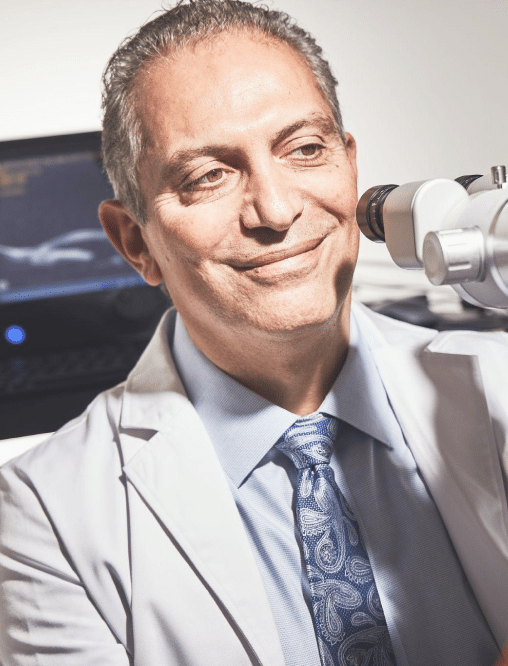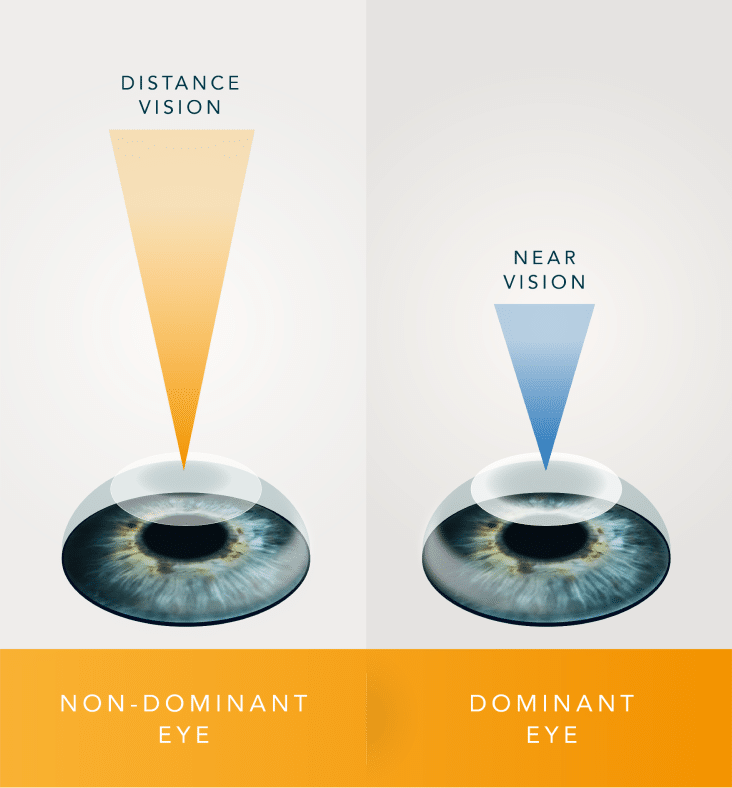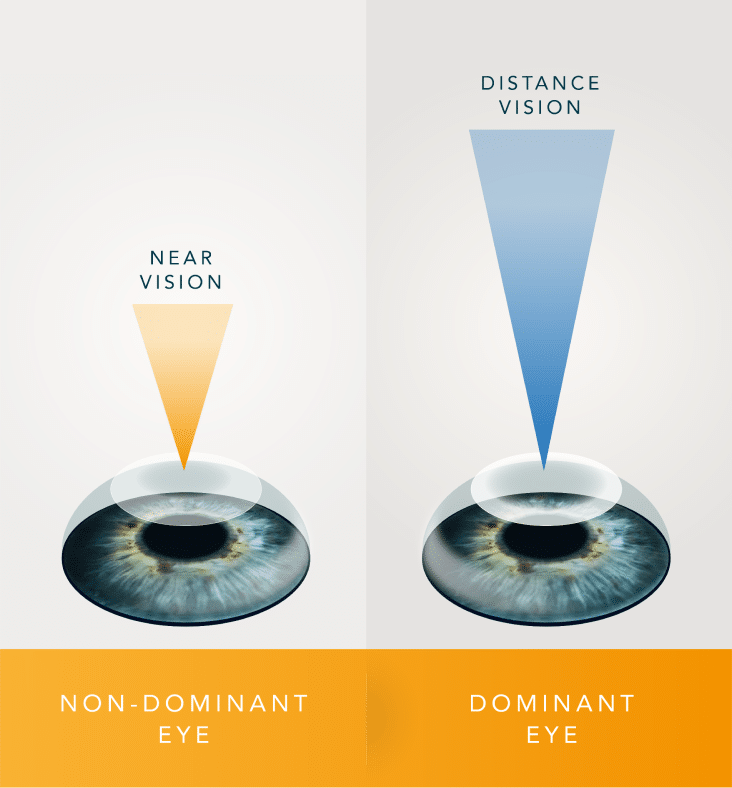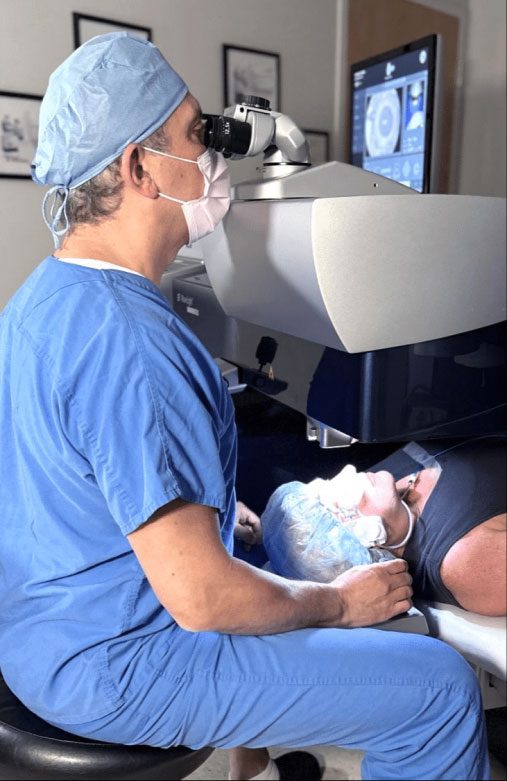Are you a LASIK candidate? How much will it cost? What are your options?
FIND OUT THROUGH A 5-MINUTE VIRTUAL CONSULTATION!
At Cohen Eye Institute, we offer a variety of solutions to help you see at all distances, near and far. Dr. Cohen has helped thousands of patients achieve their goal of never using glasses and contacts again, one such solution is monovision. Monovision can be performed with either LASIK, PRK or SMILE. It can enable patients to see properly at various distances without glasses or contact lenses. Here, we’ll look at the advantages, disadvantages, prices, and possible side effects of these treatments to help you determine whether they’re appropriate for you.

Monovision can be done through LASIK/RRK/SMILE to fix one eye for distant vision and the other eye for near. This is accomplished by modifying the laser treatment to leave one eye somewhat nearsighted while correcting the other eye fully for distant vision.

Patients with presbyopia (usually, anyone over 40 years of age) is a common disorder in which the lens of the eye loses its ability to see well at near, making reading or other close-up work difficult.

Monovision is of particular interest to patients who are over 40 years of age and have difficulty with near vision even if their distance vision is fully corrected. This is particularly tempting to people who have relied on glasses or contacts for many years and are searching for a more permanent answer to their vision correction requirements.
One of the major disadvantages of monovision LASIK and PRK is that it may not be appropriate for everyone. Some people may struggle to adapt to having one eye corrected for close vision and the other adjusted for distant vision. Others may notice mild visual distortion or diminished visual acuity in one or both eyes.
Another possible disadvantage of monovision LASIK and PRK is that it is not a permanent solution. Our eyes naturally change as we age, and the degree of nearsightedness or farsightedness may also fluctuate. This implies that even after monovision LASIK or PRK, some patients may need to wear glasses or contact lenses again in the future.
The cost of monovision LASIK, PRK, and SMILE varies based on a number of variables, including the provider’s location, the surgeon’s expertise, and the exact technology utilized for the treatment. Monovision LASIK and PRK may cost between $1500 and $4000 per eye on average.
Monovision LASIK and PRK, like any surgical technique, have inherent risks and adverse effects. Dry eyes, halos, glare, double vision, and impaired contrast sensitivity are some of the symptoms. Some individuals may also feel transient pain or grittiness in their eyes. At Cohen Eye Institute we use the latest technology and through screening with multiple measurements to ensure we can limit these possibilities to the minimum. This is why we have excellent surgical outcomes compared to the national average. View our testimonials here!

Those who desire to see well at varied distances without glasses or contact lenses may benefit from monovision LASIK and PRK. Nevertheless, it may not be appropriate for everyone, and there are some possible disadvantages and dangers to consider. It is essential to speak with a LASIK or PRK specialist, like Dr. Cohen, if you are interested in monovision LASIK or PRK.
2024 Cohen Eye Institute. All rights reserved.